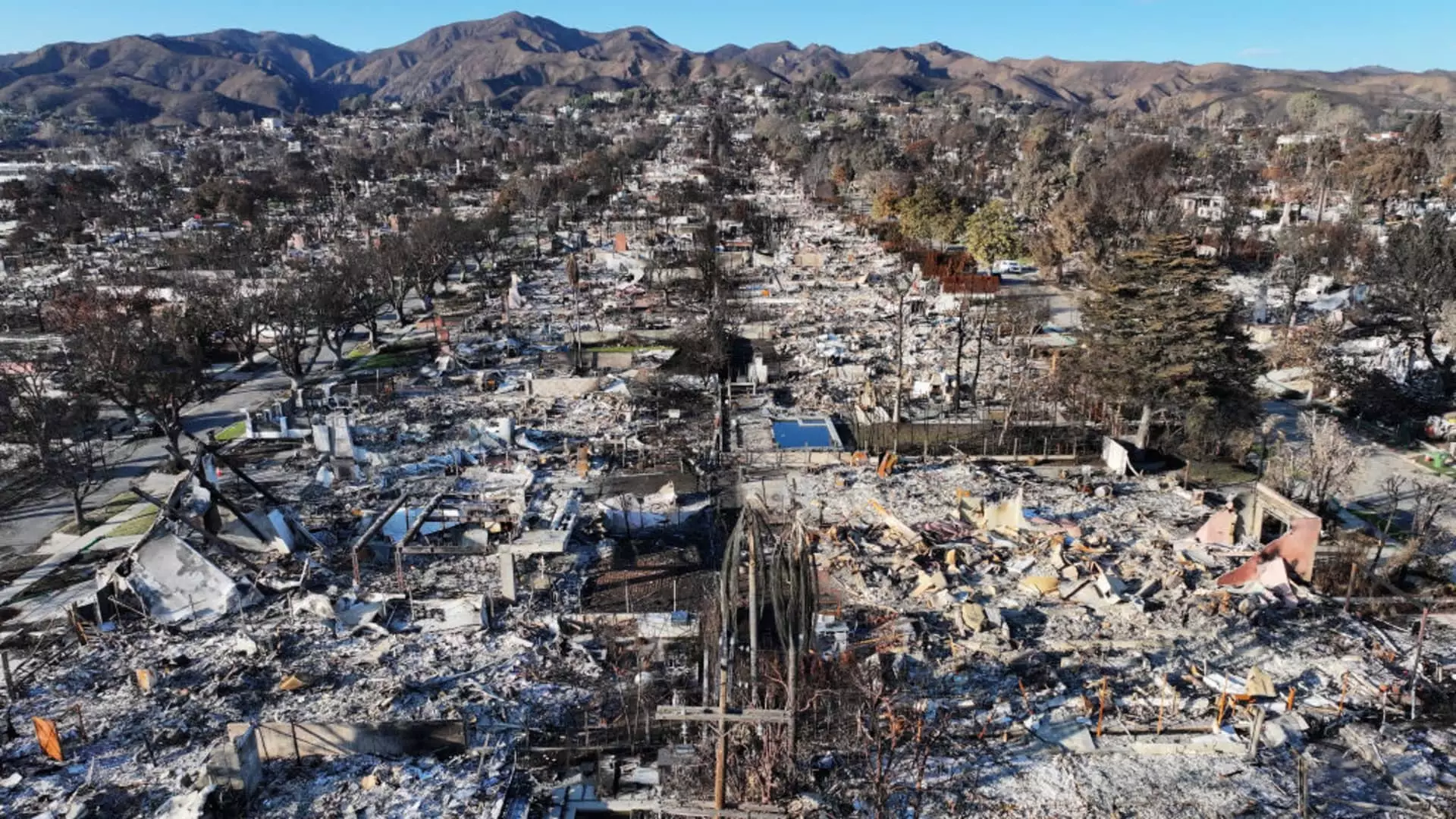The recent wildfires in Los Angeles have dealt a staggering financial blow to two of Germany’s most prominent reinsurers, Munich Re and Hannover Re. A combined loss of $1.9 billion—not just a number but a reflection of the devastating impact of climate change—is a wake-up call that cannot be ignored. As companies attempt to manage these catastrophic events, the implications extend beyond their balance sheets; they expose the vulnerabilities of our insurance systems in the face of an increasingly unpredictable climate.
Munich Re reported an anticipated 1.1 billion euros in claims attributed to the wildfires, while Hannover Re claimed its largest net loss hit 631.4 million euros. These figures are alarming but unsurprising in a world where extreme weather events are becoming the norm rather than the exception. Such significant financial ramifications stir anxiety among stakeholders, not just from the companies’ perspectives but also from communities increasingly affected by these fires—people who face loss of homes, livelihoods, and assurance that their futures are secure.
A System Under Strain
Reinsurance companies act as the bulwark against financial calamity for primary insurance providers, who are the ones that interface with customers. Yet the mechanics underlying this relationship create a perilous façade. The threshold for losses that trigger reinsurance is set at around 400 million euros, meaning the system is under strain long before reinsurers step in. This structural delay perpetuates insecurity, reminding us that behind the polished surfaces of financial forecasts lies a precarious balancing act between risk and reward.
As losses surge, we must question whether the current model of reinsurance is sustainable. The substantial losses reported by Munich Re, where overall claims exceeded 72%, as well as Hannover Re’s serious drop in profits, suggest an industry grappling with realities that many in charge seem determined to ignore. Pretending to manage risk in an era of escalating climate disasters will only compound the issues faced by both firms and the wider insurance market.
The Illusion of Resilience
Despite CFO Christoph Jurecka characterizing their earnings as a testament to “prudent management” and resilience, one must wonder how this resilience can hold up against the mounting pressures of climate change. It is easy to tout planned profit guidance amidst a storm of financial challenges, but it smacks of a refusal to confront the social realities of what their business truly represents. A 48% drop in net profit while continuing to maintain a target of 6 billion euros leaves serious questions about the genuineness of their optimism.
The financial gloss fails to acknowledge the ethical implications of reinsurance in today’s climate crisis. When the talk shifts to profit forecasts in the face of staggering human loss, we risk losing sight of the humanitarian crisis looming behind the numbers. The £1.73 billion hit to these two companies isn’t just a financial statistic; it reflects real human suffering in the wake of catastrophic events that continue to occur with alarming frequency.
Bad News for Shareholders
Investors felt the repercussions, with both Munich Re and Hannover Re experiencing drops in their stock prices around 4%, making them some of the poorest performers on the European Stoxx 600 index. The negative sentiment from analysts—despite any attempts at rebranding losses as temporary setbacks—signals a growing recognition that this crisis is more than just an aberration. Rather, it signifies a shift in how companies must approach risk management as both environmental and social factors intersect in increasingly unanticipated ways.
In a broader context, an emerging need for more innovative products is paramount. Companies must invest in better risk assessment models that account for escalating environmental dangers to avoid falling behind. Climate adaptation strategies, renewable projects, and collaborative initiatives must become the focal points of the reinsurance industry rather than mere profit margins. Failure to adapt could lead to a landscape where financial stability is short-lived, further compounding the societal backlash against the industry.
The collective inaction from corporate giants, even amidst their staggering losses, leaves a bitter taste regarding their commitment to facilitating change. It’s crucial that the reinsurers do not just brush off these losses but instead view them as a crucial call to action. By acknowledging climate change as an existential threat rather than a mere numerical inconvenience, a shift in perspective could herald a meaningful evolution in the reinsurance industry.

